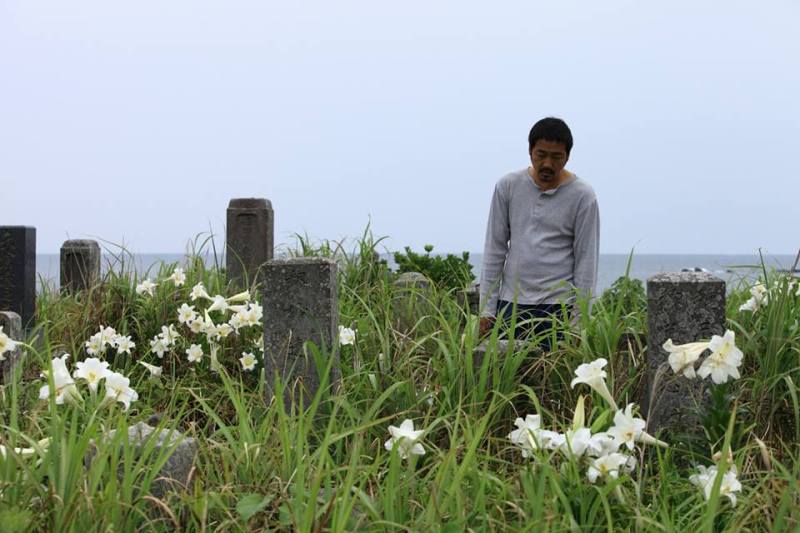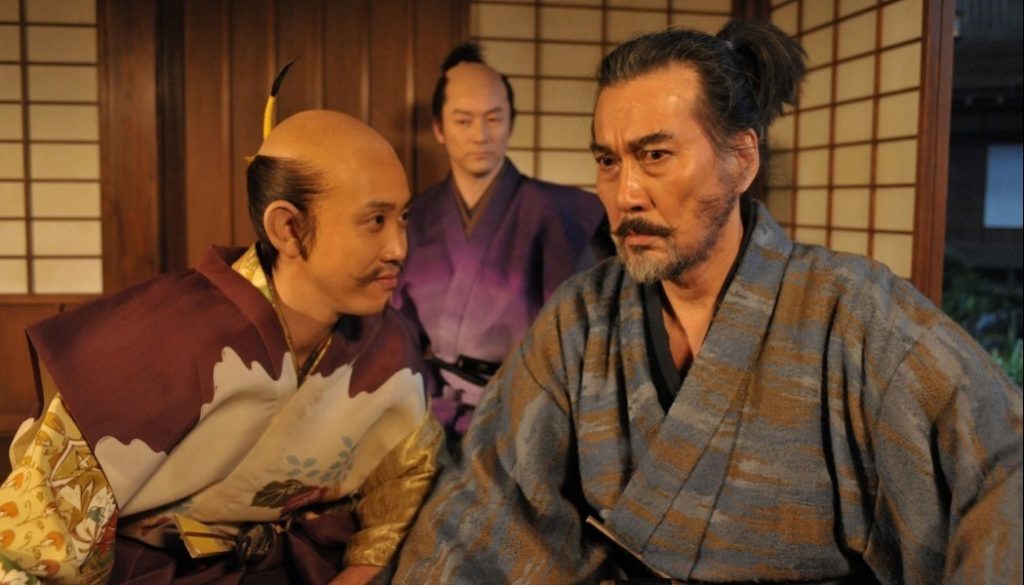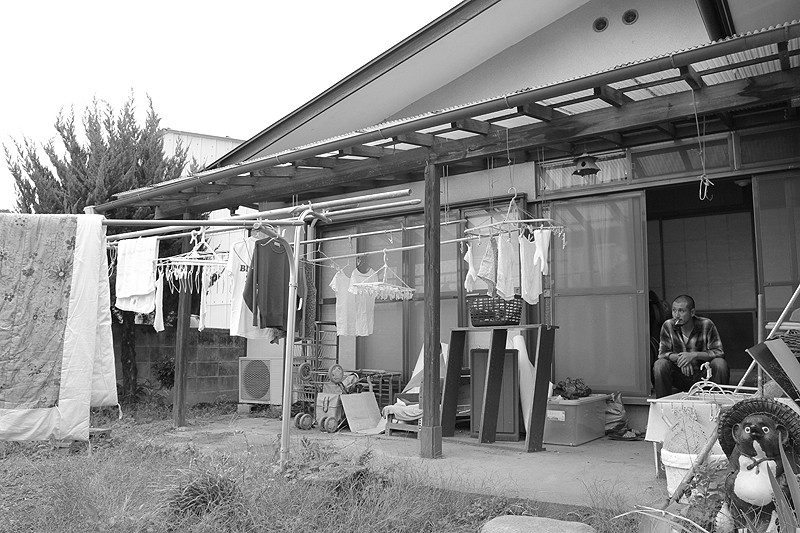Coming right on the heels of Asia’s biggest current annual cinematic showcase in Busan, today’s Tokyo International Film Festival has seen better days, but also worse ones. Under new General Director Yasushi Shima it has placed a stronger overall focus on Japanese cinema, a welcome shift if one that invariably brought mixed results to its twenty-sixth year, as many of the best recent local titles were already poached by higher-profile festivals.
A diverse Competition field featured few truly outstanding titles, and only a half-dozen or so world premieres. But its selection was nothing if not eclectic: Mumblecore veteran Joe Swanberg‘s beery romantic comedy Drinking Buddies and Iranian up-and-comer Behnam Behzadi’s impressively intense naturalistic drama Bending the Rules (a Special Jury Prize winner) rubbed shoulders with the phantasmagorical likes of Submarine director Richard Ayoade’s Dostoevsky-derived The Double, Turkish auteur Reha Erdem‘s whimsical allegory Singing Women, and Icelandic stage talent Benedikt Erlingsson’s extraordinary, unclassifiable Of Horses and Men (which deservedly won the Best Director award). Beyond the latter, perhaps the most deeply satisfying entry in the category was Levan Koguashvili‘s Blind Dates, a wry, unpredictable comedy whose generosity of spirit really sneaks up on you.
Neither Horses or Dates won the category’s top prize, however: A bit surprisingly, that Tokyo Sakura Grand Prix nod (and $50,000 in cash) went to to Swede Lukas Moodysson’s (Lilya 4-Ever) period youth seriocomedy We Are the Best!, which had already played a half-dozen major festivals.
The competing Asian features were less striking, save Hideo Sakaki’s outrageously sexual (and funny) Disregarded People adapted from work by notorious manga artist Inochi Akiyama. Another Japanese title, Koji Fukuda’s Au revoir l’été, proved a wry, pleasant if leisurely tangle of rural summer romances in a Rohmeresque mode. More disappointing were Jun Robles Lana’s Filipino Barber’s Tales, a mid-seventies-set rural melodrama perhaps unfairly shadowed by his excellent Bwakaw last year; Lee Ju-hyoung’s Red Family, which executes a good concept (a fake “family” of Northern Korea spies act like model citizens while the actual South Koreans around them embody the term “dysfunctional”) in overly broad comic terms; and Ning Ying’s To Live and Die in Ordos, a biopic about a beloved real Mongolian police chief that feels too much like pat propagandistic fiction. Alas, it was the last (and least) three of these that won major prizes—Tales and Ordos for their hefty but blunt lead performances, Family as the festival’s Audience Award winner.
The “Special Screenings” category included some high-profile international titles. Paul Greengrass’s Captain Phillips kicked off the festival, with Tom Hanks duly in da house on opening night. There was also Cannes sensation Blue Is the Warmest Color (oddly retitled Adele: Chapters 1 & 2), Soderbergh’s Liberace TV movie Behind the Candelabra, Sofia Coppola’s Bling Ring, and the belated likes of last year’s acclaimed The Sessions and Theo Angelopoulos’ five-year-old The Dust of Time.
However, the section primarily provides an early publicity boost for upcoming mainstream Japanese releases, which included sugary classic-romance-manga adaptation Beyond the Memories (the kind of movie in which a mute little girl suddenly begins to speak for no reason beyond shameless tearjerking), truly abysmal J-horror dud Bilocation, plus various routine-looking teen comedies and action flicks. Amongst a small clutch of new anime features, the best-received (despite its unfortunate conceptual resemblance to the recent live-action Upside Down) was indie animator Yasuhiro Yoshiura’s fantasy Patema Inverted.
Formulaic but diverting comedy Ties owed its distinction to a first starring big-screen role for Toshio Matsumoto aka Matsu of the pushing-forty “boy band” EXILE. He’s a natural who can hardly help but be funny no matter what he does, like Jean Desjardin or Jim Carrey—though like the latter, he sometimes needs to rein it in a bit. Closing night offered the gala premiere of writer/director/source novelist Koki Mitani’s lighthearted historical epic The Kiyosu Conference.
Nippon cinema of a different stripe—indie films that have struggled to find audiences in recent years, and which Shima has pledged the festival’s support to—were showcased in the “Japanese Cinema Splash” category. Regrettably unseen by this writer, 145-minute drama Forma (which received the section’s Best Picture Award) won raves for debuting director Ayumi Sakamoto. Other newcomers, Hirobumi Watanabe and Honsu-based collective Foolish Piggie, made a distinct impression with And the Mud Ship Sails Away, an amusingly wiseass black-and-white exercise in early Jim Jarmusch-style shaggy-dog minimalism that takes a rather startling turn toward the surreal in its final minutes. Promising something equally offbeat but emerging a rather vapid vanity project for local act CreepHyp (and their precious haircuts) was How Selfish I Am!, a pseudo-musical with an inane episodic narrative and catchy guitar-pop songs undone (at least for this listener) by the band’s incredibly annoying singer.
The “Asian Future,” “World Focus” and special “Taiwanese Cinema Renaissance” sidebars offered more opportunities for discovery. The festival’s second Iranian entry (alongside Behnam Behzadi’s impressive competition title Bending the Rules), Amir Toodehroosta’s first feature Paat linked together a series of stark human vignettes through the wanderings of the titular German Shepherd, a handsome hound separated from its master in a city and culture where dogs are generally considered unwelcome (and “unclean”). The Chinese Today and Tomorrow (winner of the Asian Future Award) by Yang Hullong and South Korea-Taiwan Takao Dancer, co-directed by Ho Wen-shing and Hwang Ou-shul, were both stylistically adventurous experiments about trios of poor young adults struggling to establish themselves in the big city. Neither were as compelling in emotional or narrative terms as they were aesthetically, but the surface bravado (esp. in Dancer) was often reward enough.
Some 35,000 patrons attended TIFF’s (not to be confused with the same-acronymed Toronto International) week of 303 screenings at Roppongi Hills’ Toho Cinemas. That was a relatively small fraction of the number visiting concurrent three-day event TIFFCOM, a “Marketplace for Film and TV in Asia” that attracted over 200,000 patrons to its separate location on Tokyo Bay’s man-made island Odaiba. While TIFF itself might be said to be in transition regarding the rebuilding of its relevance, prestige and programmatic focus, TIFFCOM’s robust showing underlined the dynamism of Asia’s entertainment media industries in general.









